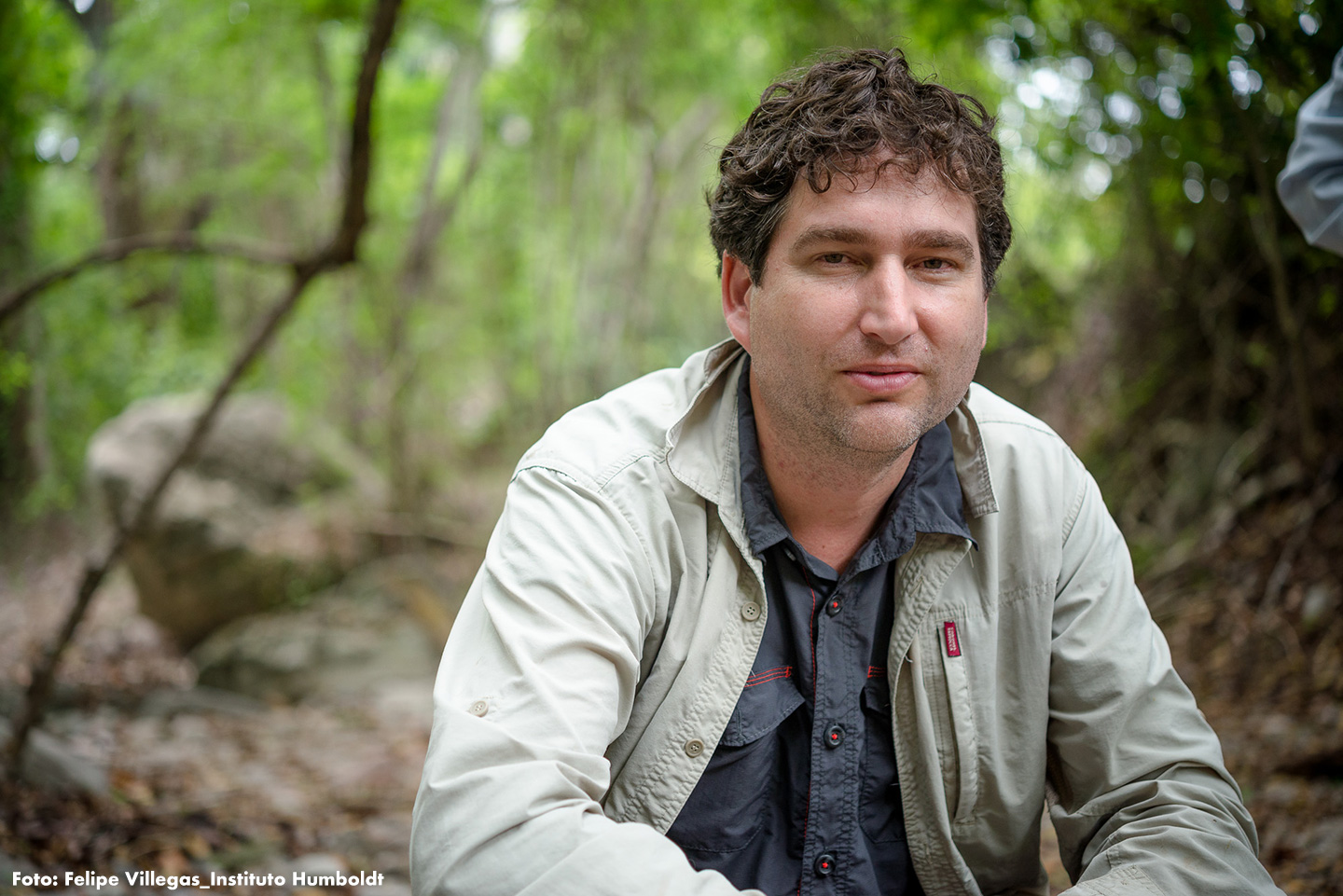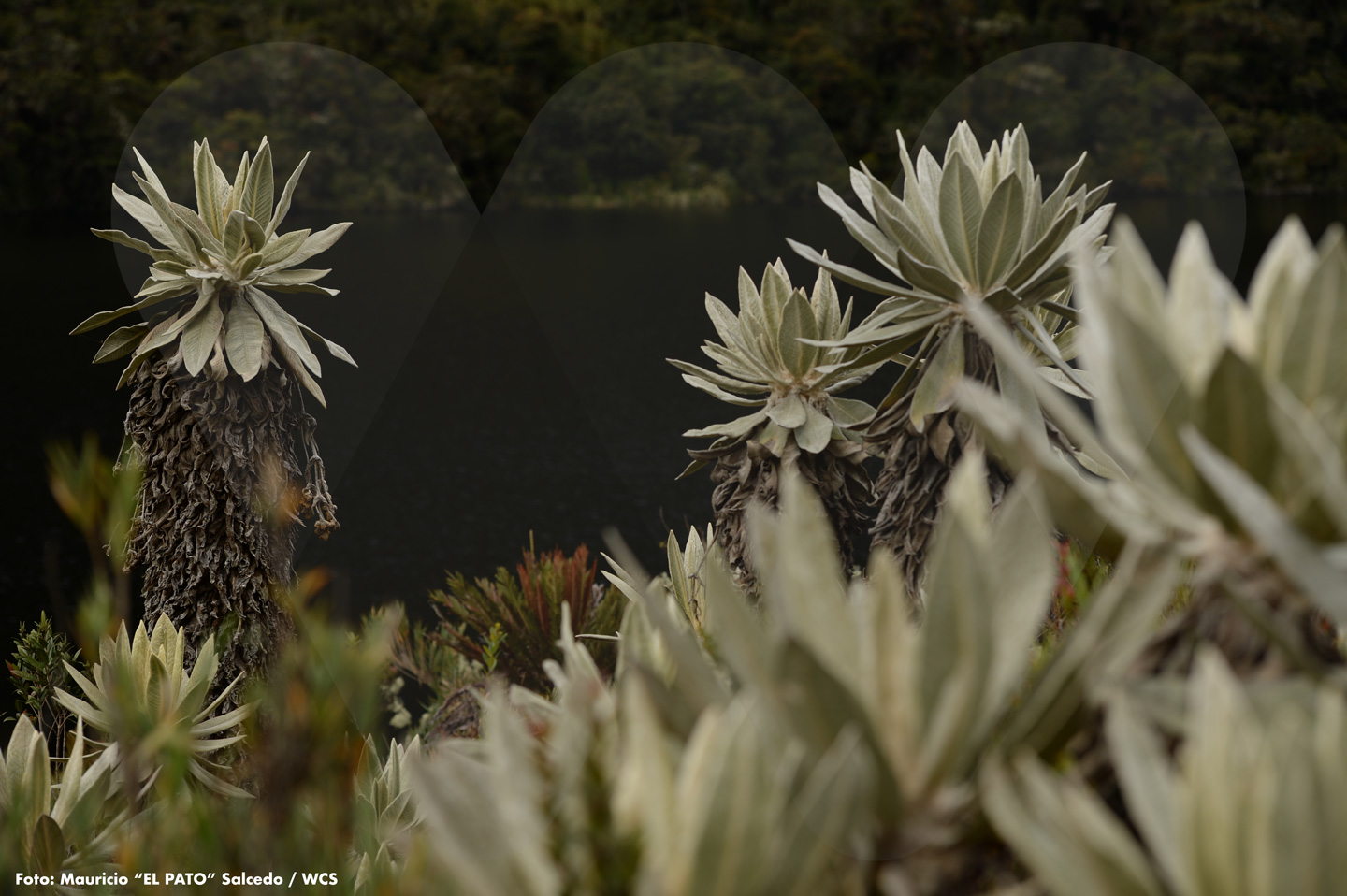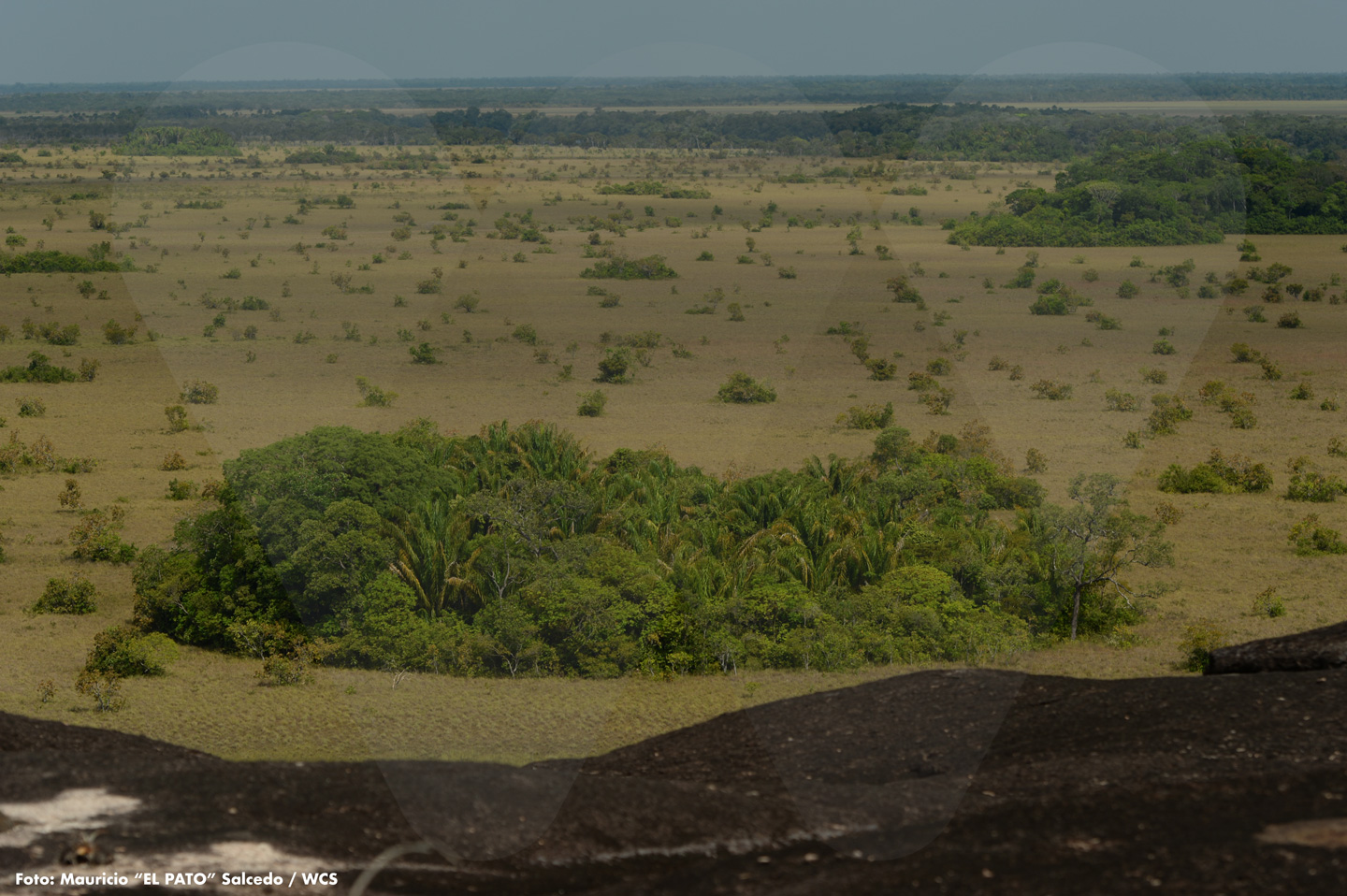In September, the Alexander von Humboldt Institute celebrates the 25th anniversary of its foundation. This organization is in charge of investigating our natural resources, to contribute with their conservation and sustainable use, this in one of the most biodiverse countries in the world. We talked with its Director, Hernando García, on the challenges he faces in these times of enormous pressures on paramos, forests and other strategic ecosystems.

Hernando García is a man innate and inherent to the Alexander von Humboldt Institute. We could say that the entity, and all his experience contributed to it, have molded, formed and educated him as a professional.
He arrived there a year after his graduation as biologist at the Universidad Javeriana, in year 2000. And, from that moment on, his connection with the institution in charge of investigating our biodiversity, promoting it and making a frequent appeal for its sustainable use, has remained intact, despite that for some years he decided to go to Spain to obtain his Master’s degree in ecology and his PhD in biology at the Universidad de Barcelona. It is, therefore, not strange that, after being a dedicated environmentalist and researcher, his destiny led him to be its director, a position that he officially assumed four months ago.
He says that, due to his permanent connection with the organization, he has worked with all of its directors, who have perfected his mission, starting with Cristián Samper (1995-2001), currently President and CEO of Wildlife Conservation Society (WCS). And, in recent years, he was the right hand of Brigitte Baptiste, the last one of his bosses and one of the most renowned biologists of the country due to her frequent calls of attention for the country to give a responsible management to its natural resources.
We talked with Hernando — born in Cali and a loyal defender of the dry forest – because the ‘Humboldt’, as the Institute is colloquially known, is celebrating 25 years of its foundation, a fitting moment for him to tell us about his objectives, plans and expectations. A fourth part of a century is a long time, but it can also be only the beginning.
After so many years at the Institute and after seeing the work of many of its directors, what is the approach that you are introducing to the entity?
As soon as my designation was made official and I was leaving from an interview with President Iván Duque and the Minister of Environment and Sustainable Development, Ricardo Lozano, I received a call from Cristián Samper, one of the founders of the Institute. He said: “A son of the Humboldt, arrives to the direction of the Humboldt”. It was very inspiring, but it reaffirmed me in the fact that the entity has been and continues being a unique institution. Our vision can be summarized in one phrase: transformative knowledge. That is, excellence in knowledge and connection of that knowledge with spaces of discussion for decision-making. We will not hide and we have not hidden, when complex discussions arise in the country, such as the demarcation of paramos, the navigability of the Magdalena River or the use of glyphosate, to mention some issues.
That is, you still opt for the power and the force of science...
Yes. Science has power and must not be understood as a lavish subject. Maybe the great contribution of former director Brigitte Baptiste was that she relentlessly upheld that science must always have a commitment with society; one is answerable to the other and they must complement each other.

Maybe one of the challenges of research institutes is to defend knowledge against decisions motivated by political issues or influenced by economic interests that, many times, do not consider scientific views or ignore them. ¿How can you deal with this obstacle?
We must be focused on the fact that the strategy is to position knowledge as a critical variable in decision-making, but should also know and understand that the knowledge that we contribute is not, or should not, always be the decision. If we think so, we will be discouraged. The key is to position the best knowledge, in the best possible language, at the adequate time and with the suitable tools, within the process that entails making these political decisions. This is more important than the decision in itself, because we always trust that, whatever this decision may be, it can have a social control.
Do you identify any weakness in the ‘Humboldt’ or some serious challenge to face?
We still have to enter the rural environment. We have been effective participating at central Government level, in departments, in corporate decisions, but we still have a challenge: to disclose our knowledge among local farmers that seek to improve their governance.
Which do you think could be the main difference between Brigitte Baptiste’s direction and yours?
Brigitte was, and is, a generator of opinion. I am more of an observer. I am very interested in and attentive to social and political discussions to try to identify what can be the necessary knowledge that we can contribute so that these discussions can be better informed. I want the knowledge constructed based on the data we generate to be transmitted in the adequate language, at the adequate moment and to the adequate space.
Are you interested in creating awareness among the public in general or the common citizen indifferent to environmental issues, of what the Humboldt Institute is or what it does?
It is not too relevant; that objective is not one of our five priorities. But I will tell you something interesting that happened two years ago. An independent observatory published a study of perception of science and technology organizations in Colombia; the Humboldt Institute was second among the organizations with the best perception among the public. The National University was first place. Maybe this happens because we have had a good mobilization of science-based messages in everyday language through social media. The people who work in the environmental sector know us sufficiently and we already covered that space, but we have not been able to enter the segment of people not involved with environmental issues and that should happen precisely for communities to know what their role in nature is.
Are there, for the Humboldt Institute, ecosystems in which you as Director are interested and that can be considered a priority?
I could say that the ecosystems that have the greatest interest are paramos, necessarily; dry forests, due to their critical condition; continental aquatic systems, because we want to understand their dynamics; cloud forests and the high plains.
Regardless of their strategic value, it seems that Colombia does not reach a consensus regarding its paramos. There are still threats that put their protection or the future of some at stake, because the interest in developing big scale projects in their vicinity persists. What are your thoughts regarding this matter?
Paramos deserve a great national agreement. From the Institute, we are complying with our mission by informing which part of the territory corresponds to paramos (demarcation). Their conservation should be an inclusive process for the entire society. We know what can be done in the paramos and what not, but we have to design strategies that will enable their present inhabitants to continue living there. The conservation of strategic ecosystems is possible with people living within them. Demarcation does not resolve everything nor does the Humboldt Institute have all the knowledge; the other institutions also have to contribute for their protection.
How do you analyze the consequences of deforestation in Colombia, perhaps one of our most serious problems?
It is frustrating at times, but we are trying to identify how we can generate knowledge that can contribute to reduce this impact. It is all about knowing how, with biodiversity and its adequate and responsible use, we can create development opportunities for the communities (bioeconomy), that we should promote so they can have a strong governance. For example, in the Amazon region (where most part of deforestation is concentrated) with organized communities, the consolidation of environmental damage is difficult.
Has some activity been planned for the 25 years of the Institute?
We will have a private congress in September. It will be a virtual meeting with all the former directors, that is, Cristián Samper, Fernando Gast, Eugenia Ponce and Brigitte Baptiste will be present. We will discuss ideas and define actions to continue strengthening the Institute. As I said before, the Institute continues being unique and has a clear objective, beyond different views or administrations. We proudly see an institutional growth that has reaffirmed the fact that the generation of knowledge has a value, and that value should be addressed to the transformation of political and social decisions.
